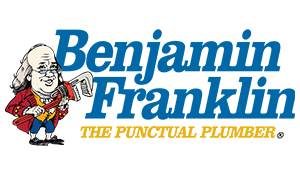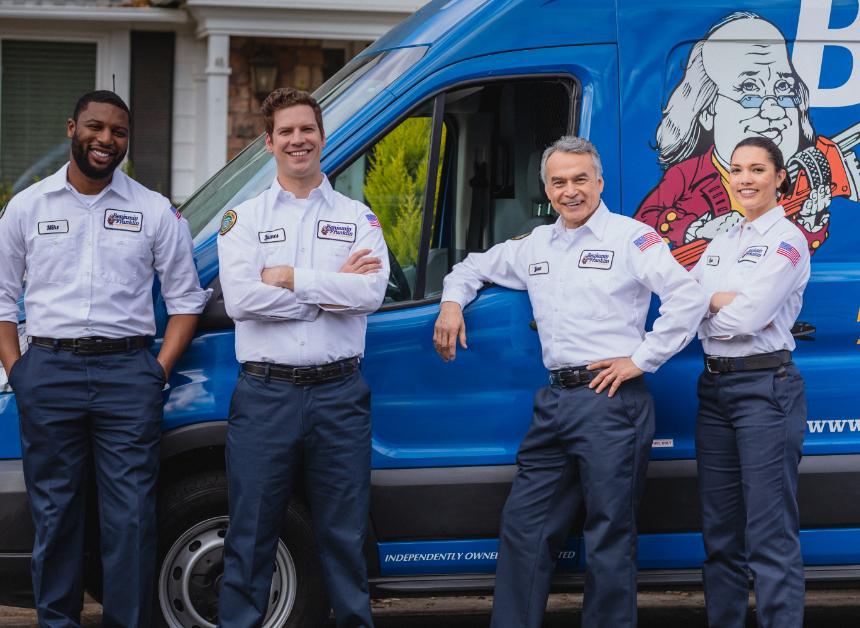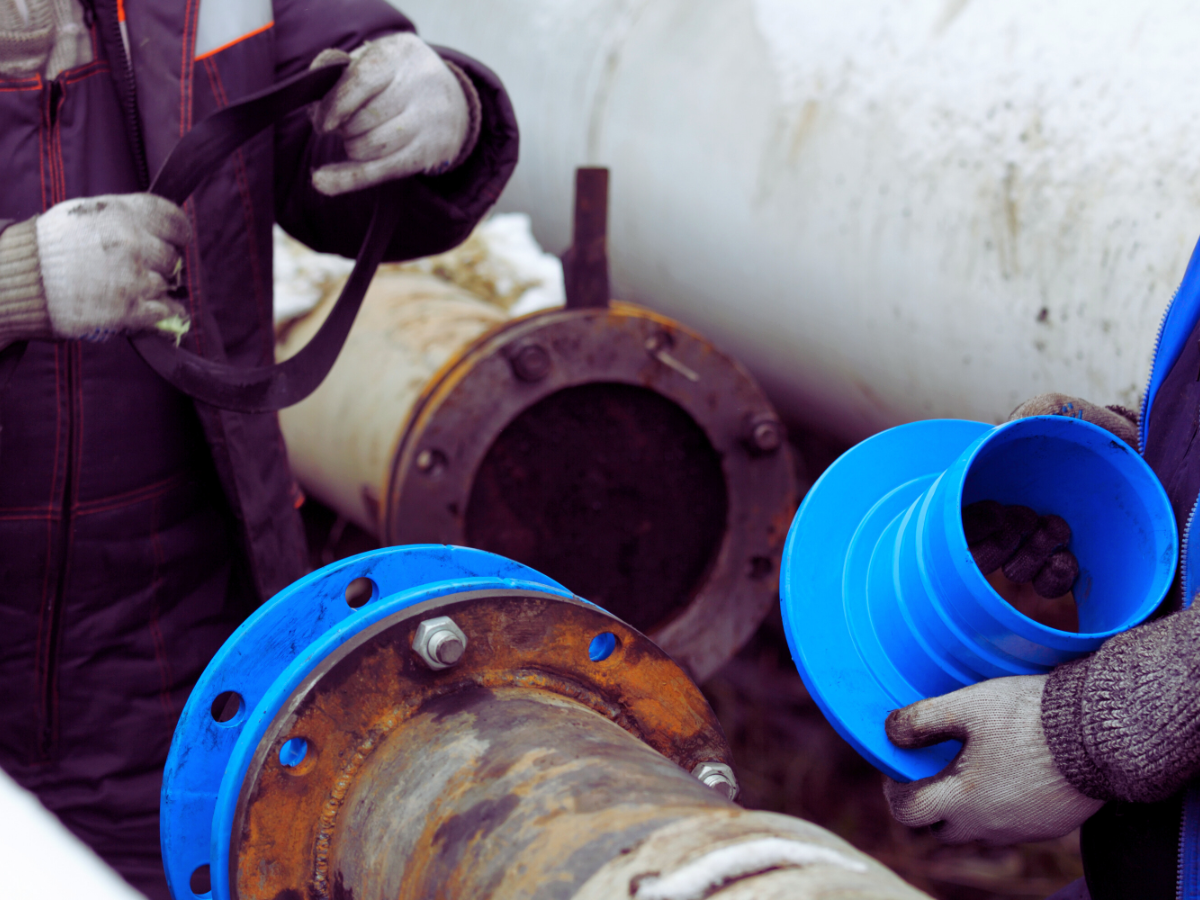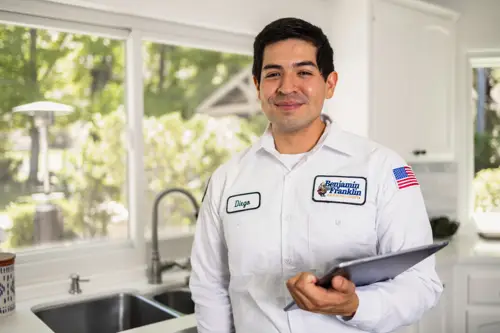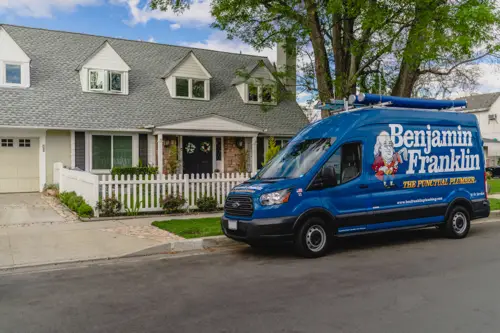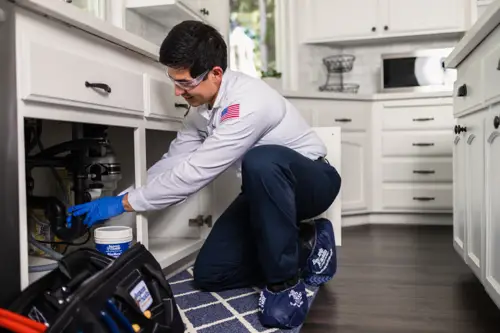Clear a Clog in Older Pipes Without Causing Leaks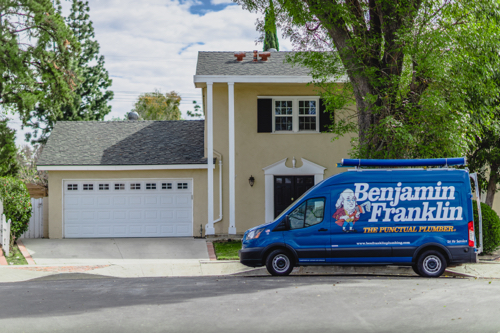
Living in an older home sometimes involves dealing with a few quirks, such as a squeaky door. But, there are some common issues that need attention right away. Older pipes are prone to clogging, which can lead to hazardous sewage water backups. Yet, many DIY methods can also cause damage to pipes. Knowing how to clear a clog and when to call for professional help is easier when you use these tips.
Quick Takeaways
- Many older homes have galvanized steel or cast-iron pipes that are prone to corrosion.
- Normal house settling can create dips or breaks in plumbing lines that catch debris.
- Tree roots are common findings in aging pipes.
- Modern appliances may produce more wastewater than smaller, older pipes can handle.
- Enzymatic drain cleaners are gentler on pipes than caustic chemicals.
What Are the Main Reasons Why Older Pipes Clog Frequently?
Taking a look at these common causes of frequent clogs can help you prepare for your upcoming plumbing inspection.
- Sagging or dipping plumbing lines
- Older pipe materials with corrosion or cracks
- Tree roots trapping debris and blocking water flow
- Improperly done DIY fixes from past homeowners
Which Drain Cleaners Are Safe for Aging Pipes?
All it takes is a quick walk down the cleaning aisle at your local grocery store to see many different brands of drain cleaners. As a general rule, it’s best to avoid putting anything down the drain other than soap and water. But, it’s good to know the safest ways to clear a clog when you are determined to try a drain cleaner.
Avoid Using Caustic Cleaners
You might see lye, sodium hydroxide and other caustic ingredients listed on the table of these drain cleaners. These work by generating heat that can cause corrosion in older pipes, especially those made from cast iron and galvanized steel.
Watch Out for Acidic De-Clogging Solutions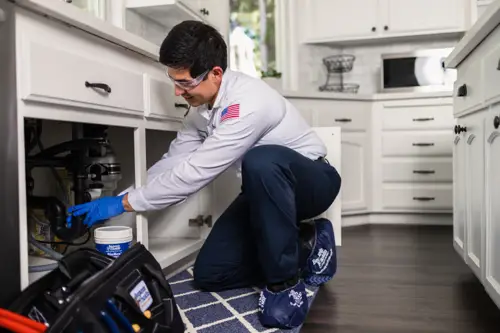
Sulfuric acid or hydrochloric acid might be listed on the label for these drain cleaners. They are designed to break down organic materials. But, the harsh acidic reaction can also eat through clay, galvanized steel and cast iron pipes.
Use Caution with Oxidizing Cleaners
You’ll likely notice that these are made with peroxide, bleach and nitrates that release oxygen when they contact organic materials. While these are less likely to cause damage to aging metal pipes, they can when used frequently or in the wrong amounts.
How Can Professional Plumbers Permanently Fix Clogging Pipes?
A professional plumber has methods to clear a clog that can stop it from coming back. First, our plumbers will perform a thorough inspection of the pipes. Video camera inspections are useful for identifying clogs, dips in the lines and breaks that catch hair, soap scum and other debris.
Once our Miami plumbers finish their inspection, they may recommend one or several of the following solutions to permanently end the clogging problem. Of course if you still have questions feel free to ask, and our friendly team will be happy to explain everything so you understand.
Use Hydro Jetting for Deep Clog Removal
This drain-clearing option uses high-pressure flows of water to push clogs out of the way and break them up into smaller pieces that flush through the pipes. For aging drainage lines, our plumbing technician can use gentler flows of water that won’t harm the pipes. While this option can break up tree roots and other tough debris, you may still need further repairs to prevent clogs from forming later.
Reposition Misaligned Pipes
Changes in the ground and your home’s foundation can cause pipes to move out of place. Repositioning the pipes to eliminate dips can stop obstructions from happening.
Replace Old Pipes With Modern Materials
Galvanized steel and cast iron pipes are well-known in the plumbing industry for causing problems. Our team can replace your home’s outdated pipes with new materials such as PVC and PEX to prevent clogs and the risk of breaks in the line.
Add a New Backwater Valve
During periods of heavy rainfall, it’s possible for backups to occur in older homes that lack a backwater valve. We can install a backwater valve to allow the wastewater to flow out freely to reduce backups.
Install a Garbage Disposal
To be clear, garbage disposals aren’t meant to substitute for a trash can or sink strainer. But, you may find it helps to have one in place to help with breaking up food debris that still makes its way into the drain. Our friendly plumber will show you how to use the new disposal to make sure it stays in good condition.
FAQs
Can plumbers replace older drain lines with wider ones?
Yes, some older homes have drain lines that don’t align with the needs of modern appliances. Updating drain lines to wider ones can allow wastewater from large washers to flow out more freely.
What happens if I accidentally pour grease down the sink?
You can often clear small amounts of fresh grease from the drain by running hot water and flushing the line with dish soap. Or, you might try a mixture of baking soda and vinegar before calling a plumber if you can’t clear a clog.
When should I consider replacing pipes that keep clogging?
Plumbers typically recommend replacing cast iron or galvanized steel pipes due to their tendency to experience damage. We may recommend replacing a pipe with cracks or severe dips.
Is hydro jetting safe for aging pipes?
Plumbers can sometimes use hydro jetting on older pipes, but we will only do so after we inspect them to make sure it is safe
Find Permanent Drain Clearing Solutions for Older Homes in Miami, FL
Clogged pipes aren’t a normal quirk that you should have to deal with when you own an older home. In fact, you shouldn’t hear weird knocks, clanks and other ghostly sounds coming from your home’s plumbing lines.
Our punctual plumbers at Benjamin Franklin plumbing in Miami, FL and the surrounding communities take drain clogs seriously. In fact, we’ll even let you know that if there’s a delay, it’s YOU we pay. Timely drain clearing can save your older home’s structural integrity. Reach out to our team to begin finding clog solutions today.
